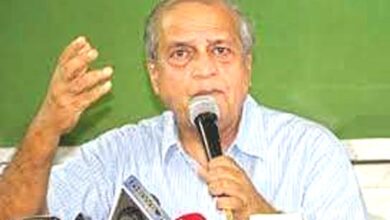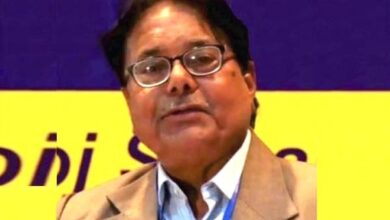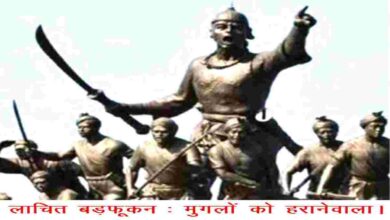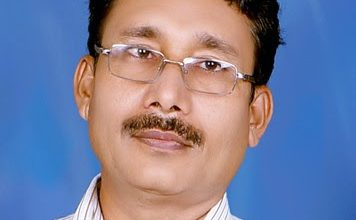देश में पुलिस सेवा को बनाया जाए बेहतर desh mein pulis seva ko banaaya jae behatar

©प्रियंका सौरभ
परिचय– हिसार, हरियाणा.
देश में आज जिस तरह की आंतरिक और बाहरी चुनौतियों हैं, पुलिस की जिम्मेदारी, उनकी भूमिका और उसके कार्य का महत्व और ज्यादा बढ़ जाता है. पुलिस फोर्स में पांच लाख से अधिक पद खाली पड़े हैं। एक रिपोर्ट के अनुसार देश के हर तीसरे थाने में कोई सीसीटीवी कैमरा नहीं है। देश में 841 लोगों पर महज एक पुलिसकर्मी है। देश की आधी आबादी महिलाएं हैं, लेकिन पुलिस में उनकी भागीदारी सिर्फ साढ़े दस फ़ीसदी है। देश के 41 प्रतिशत पुलिस थाने ऐसे हैं, जहां एक भी महिला पुलिसकर्मी तैनात नहीं है। यह तस्वीर है देश के पुलिस बल की।
पुलिस बलों की प्राथमिक भूमिका कानूनों को बनाए रखना और लागू करना, अपराधों की जांच करना और देश में लोगों की सुरक्षा सुनिश्चित करना है। संविधान के तहत, पुलिस राज्यों द्वारा शासित विषय है। भारत में पुलिस व्यवस्था और सुधार पर लगभग 30 साल से बहस चल रही है। वर्तमान भारतीय पुलिस प्रणाली काफी हद तक 1861 के पुलिस अधिनियम पर आधारित है। पुलिस सुधार लगभग आजादी के बाद से ही सरकारों के एजेंडे में है, लेकिन 70 से अधिक वर्षों के बाद भी, पुलिस को चुनिंदा रूप से कुशल, वंचितों के प्रति सहानुभूति के रूप में देखा जाता है।
हमारे देश में पुलिस सेवा का बड़ा महत्व है. पिछले 75 सालों में ये प्रयास रहा है कि देश में पुलिस सेवा को बेहतर बनाया जाए. इस ट्रेनिंग से जुड़े इंफ्रास्ट्रक्चर में भी पिछले कुछ सालों में सुधार किये गए हैं. आज देश में जिस तरह की आंतरिक और बाहरी चुनौतियों है, पुलिस की जिम्मेदारी, उनकी भूमिका और उसके कार्य के महत्व और ज्यादा बढ़ जाता है।
संविधान के अनुसार पुलिस राज्य सूची का विषय है, इसलिये भारत के प्रत्येक राज्य के पास अपना एक पुलिस बल है.राज्यों की सहायता के लिये केंद्र को भी पुलिस बलों के रखरखाव की अनुमति दी गई है ताकि कानून और व्यवस्था की स्थिति सुनिश्चित की जा सके।
किसी भी लोकतांत्रिक देश में पुलिस बल की शक्ति का आधार जनता का उसमें विश्वास है और यदि यह नहीं है तो समाज के लिये घातक है। पुलिस में संस्थागत सुधार ही वह कुंजी है, जिससे कानून व्यवस्था को पटरी पर लाया जा सकता है, आज देश को पुलिस व्यवस्था में बदलाव की आवश्यकता, सुधार, विभिन्न आयोग और समितियों की सिफारिशें, पुलिस सुधार में न्यायालयों की भूमिका और नागरिकों को प्राप्त अधिकारों पर खुलकर चर्चा की जरूरत है।
गृह मंत्रालय के पुलिस अनुसंधान एवं विकास ब्यूरो की हाल ही में एक रिपोर्ट सामने आई है। इस रिपोर्ट में देश की पुलिसिंग व्यवस्था को लेकर कई चौंकाने वाले पहलु सामने आए हैं। मसलन देश में पुलिसिंग पर प्रति व्यक्ति खर्च पिछले दस सालों में दोगुना हो गया लेकिन लेकिन पुलिस फोर्स में पांच लाख से अधिक पद खाली पड़े हैं। इस रिपोर्ट के अनुसार देश के हर तीसरे थाने में कोई सीसीटीवी कैमरा नहीं है। देश में 841 लोगों पर महज एक पुलिसकर्मी है।
देश की आधी आबादी महिलाएं हैं, लेकिन पुलिस में उनकी भागीदारी सिर्फ साढ़े दस फ़ीसदी है। देश के 41 प्रतिशत पुलिस थाने ऐसे हैं, जहां एक भी महिला पुलिसकर्मी तैनात नहीं है। यह तस्वीर है देश के पुलिस बल की। यह हाल तब है जब देश में आंतरिक स्तर पर कई चुनौतियां है। कानून व्यवस्था राज्यों का मसला है लेकिन सवाल लोगों की सुरक्षा का इसलिए पुलिस सेवा सुधार सभी सरकारों की जिम्मेवारी बनती है।
पिछले दशक की तुलना में प्रति लाख जनसंख्या पर अपराध में 28% की वृद्धि हुई है। हालांकि, सजा कम रही है। तो यह जांच की खराब गुणवत्ता को दर्शाता है। विधि आयोग और द्वितीय प्रशासनिक सुधार आयोग ने नोट किया है कि राज्य के पुलिस अधिकारी अक्सर जांच की उपेक्षा करते हैं क्योंकि उनके पास विभिन्न प्रकार के कार्यों की कमी और अत्यधिक भार होता है।
इसके अलावा, उनके पास पेशेवर जांच करने के लिए आवश्यक प्रशिक्षण और विशेषज्ञता का अभाव है। उनके पास अपर्याप्त कानूनी ज्ञान भी है और उनके लिए उपलब्ध फोरेंसिक और साइबर बुनियादी ढांचा अपर्याप्त और पुराना दोनों है। मजबूरन, पुलिस बल सबूत हासिल करने के लिए बल प्रयोग और यातनाएं दे सकते हैं।
अपराध जांच राजनीतिक या अन्य बाहरी विचारों से प्रभावित हो सकती है; जैसे फोरेंसिक लैब की समस्या के बारे विशेषज्ञ निकायों ने कहा है कि इन प्रयोगशालाओं में धन और योग्य कर्मचारियों की कमी है। इसके अलावा, इन प्रयोगशालाओं में मामलों का अंधाधुंध संदर्भ दिया जाता है जिसके परिणामस्वरूप उच्च लंबितता होती है।
केंद्र और राज्यों के बीच समन्वय की कमी कानून और व्यवस्था के रखरखाव से संबंधित मामला है, जिसके परिणामस्वरूप पुलिस बल का अप्रभावी कामकाज होता है। पुलिस बल संरचनात्मक कमजोरियों के कारण साइबर अपराध, वैश्विक आतंकवाद, नक्सलवाद की वर्तमान समस्याओं से निपटने की स्थिति में नहीं है।
पुलिस बल पर विशेष रूप से निचले स्तरों पर अधिक बोझ होता है, जहां कांस्टेबल को लगातार 14-16 घंटे और सप्ताह में 7 दिन काम करने के लिए मजबूर किया जाता है। यह उनके प्रदर्शन पर प्रतिकूल प्रभाव डालता है। जबकि 2016 में स्वीकृत पुलिस संख्या प्रति लाख व्यक्ति पर 181 पुलिस थी, जब संयुक्त राष्ट्र ने सिफारिश की थी कि मानक प्रति लाख व्यक्ति 222 पुलिस है।
राज्य की 86 फीसदी पुलिस में सिपाही शामिल हैं। कांस्टेबलों को आमतौर पर उनकी सेवा के दौरान एक बार पदोन्नत किया जाता है। यह अच्छा प्रदर्शन करने के लिए उनके प्रोत्साहन को कमजोर कर सकता है।
पुलिस सुधारों में शामिल किए जाने वाले सबसे महत्वपूर्ण बिंदुओं में से एक यह है कि पुलिस को स्थानीय स्तर के राजनीतिक दबाव से मुक्त होना है। क्योंकि स्थानीय स्तर पर कई मामले सार्वजनिक जीवन में होते हैं और पीड़ितों को उनका कानूनी न्याय नहीं मिलता है। हमें पुलिस को भारत के संविधान की संयुक्त सूची में लाने की जरूरत है। भारत की आंतरिक सुरक्षा गहरी चिंता का विषय है।
सीआरपीसी, आईपीसी और भारतीय साक्ष्य अधिनियम में संशोधन के साथ पुलिस सुधारों में ज्यादा समय नहीं लगना चाहिए। पुलिस रेगुलेशन -1861 को भी बदलने कि बात होनी चाहिए क्योंकि यह कानून भारतीयों के शोषण के लिए बनया था अंग्रेजो ने अपने जरूरत के अनुसार इसे बनाया था, यह कानून 161वर्ष पुराना हो गया है।
जबकि वेतनमान और पदोन्नति में सुधार पुलिस सुधार के आवश्यक पहलू हैं, मनोवैज्ञानिक स्तर पर आवश्यक सुधारों के बारे में बहुत कम बात की गई है। भारतीय पुलिस बल में, निचले रैंक के पुलिस कर्मियों को अक्सर उनके वरिष्ठों द्वारा मौखिक रूप से दुर्व्यवहार किया जाता है या वे अमानवीय परिस्थितियों में काम करते हैं।
यह गैर-सामंजस्यपूर्ण कार्य वातावरण अंततः जनता के साथ उनके संबंधों को प्रभावित करता है। पुलिस-जनसंपर्क एक असंतोषजनक स्थिति में है क्योंकि लोग पुलिस को भ्रष्ट, अक्षम, राजनीतिक रूप से पक्षपातपूर्ण और अनुत्तरदायी के रूप में देखते हैं। इसके अलावा, आम तौर पर नागरिकों को पुलिस स्टेशन जाने या पुलिस बलों के निचले रैंक से निपटने का डर होता है।
इसके अलावा, पुलिस बलों के भीतर रिक्तियों का एक उच्च प्रतिशत अतिभारित पुलिस कर्मियों की मौजूदा समस्या को बढ़ा देता है। पुलिस बल को कार्यपालिका के बन्धन से मुक्त करने और कानून के शासन को लागू करने के लिए कार्यात्मक स्वायत्तता देने की आवश्यकता है। पुलिस एक स्मार्ट पुलिस होनी चाहिए – एक पुलिस जो सख्त और संवेदनशील, आधुनिक और मोबाइल, सतर्क और जवाबदेह, विश्वसनीय और जिम्मेदार, तकनीक-प्रेमी और प्रशिक्षित होनी चाहिए।

Priyanka Saurabh
The type of internal and external challenges in the country today, the importance of the responsibility of the police, their role and their work increases even more. More than five lakh posts are lying vacant in the police force. According to a report, every third police station in the country does not have any CCTV cameras. There is only one policeman for 841 people in the country. Half of the country’s population are women, but their participation in the police is only ten and a half percent. 41 percent of the police stations in the country are such, where not a single woman policeman is posted. This picture is of the police force of the country.
The primary role of the police forces is to maintain and enforce laws, investigate crimes and ensure the safety of the people in the country. Under the Constitution, the police is a subject governed by the states. The debate on policing and reforms in India has been going on for almost 30 years. The present Indian police system is largely based on the Police Act of 1861. Police reform has been on the agenda of governments almost since independence, but even after more than 70 years, the police are seen as selectively skilled, sympathetic to the underprivileged.
Police service is of great importance in our country. In the last 75 years, it has been an effort to improve the police service in the country. Improvements have also been made in the infrastructure related to this training in the last few years. Today, the kind of internal and external challenges in the country, the importance of the responsibility of the police, their role and their work increases even more.
According to the constitution, police is a state subject, so each state of India has its own police force. To help the states, the center has also been allowed to maintain police forces so that law and order situation can be ensured. .
In any democratic country, the basis of the power of the police force is the trust of the people in it and if it is not there then it is fatal for the society. Institutional reforms in police is the key by which law and order can be brought back on track, today the country needs to change the police system, reforms, recommendations of various commissions and committees, role of courts in police reforms and rights given to citizens. But it needs to be discussed openly.
A recent report of the Bureau of Police Research and Development of the Ministry of Home Affairs has come out. In this report, many shocking aspects have come to the fore regarding the policing system of the country. For example, the per capita expenditure on policing in the country has doubled in the last ten years, but more than five lakh posts are lying vacant in the police force. According to this report, every third police station in the country does not have any CCTV cameras. There is only one policeman for 841 people in the country.
Half of the country’s population are women, but their participation in the police is only ten and a half percent. 41 percent of the police stations in the country are such, where not a single woman policeman is posted. This picture is of the police force of the country. This is the situation when there are many challenges at the internal level in the country. Law and order is the issue of the states but the question of security of the people is therefore the responsibility of all the governments to reform the police service.
Crime per lakh population has increased by 28% over the last decade. However, the punishment has been short. So it shows poor quality of investigation. The Law Commission and the Second Administrative Reforms Commission have noted that state police officers often neglect investigations as they lack a variety of functions and are overburdened.
In addition, they lack the necessary training and expertise to conduct professional investigations. They also have insufficient legal knowledge and the forensic and cyber infrastructure available to them is both inadequate and outdated. Forced, police forces may use force and torture to obtain evidence.
Crime investigation may be influenced by political or other outside considerations; As for the problem of forensic labs, expert bodies have said that there is a shortage of funds and qualified staff in these labs. Moreover, cases are referred to indiscriminately in these laboratories resulting in high pendency.
The lack of coordination between the Center and the states is a matter relating to the maintenance of law and order, resulting in ineffective functioning of the police force. The police force is not in a position to deal with the current problems of cyber crime, global terrorism, naxalism due to structural weaknesses.
The police force is especially overburdened at the lower levels, where constables are forced to work continuously for 14-16 hours and 7 days a week. This adversely affects their performance. While the sanctioned police strength in 2016 was 181 police per lakh person, when the United Nations recommended that the standard is 222 police per lakh person.
Soldiers constitute 86 per cent of the state’s police. Constables are usually promoted once during their service. This can undermine their incentive to perform well.
One of the most important points to be included in police reforms is that the police have to be free from political pressure at the local level. Because at the local level many cases are in public life and the victims do not get their legal justice. We need to bring the police in the Joint List of the Constitution of India. India’s internal security is a matter of deep concern.
With amendments in CrPC, IPC and Indian Evidence Act, police reforms should not take much time. There should also be talk of changing the Police Regulation-1861 because this law was made for the exploitation of Indians, the British had made it according to their need, this law has become 161 years old.
While reforms in pay scales and promotions are essential aspects of police reform, little has been talked about the reforms needed at the psychological level. In the Indian Police Force, lower rank police personnel are often verbally abused by their superiors or they work in inhumane conditions.
This non-harmonious work environment ultimately affects their relationship with the public. Police-public relations is in an unsatisfactory state as people view the police as corrupt, incompetent, politically partisan and unresponsive. In addition, citizens generally fear going to the police station or dealing with the lower ranks of the police forces.
In addition, a high percentage of vacancies within police forces exacerbate the existing problem of overloaded police personnel. The police force needs to be freed from the shackles of the executive and given functional autonomy to enforce the rule of law. The police should be a smart police – a police that should be tough and sensitive, modern and mobile, alert and accountable, reliable and responsible, tech-savvy and trained.















